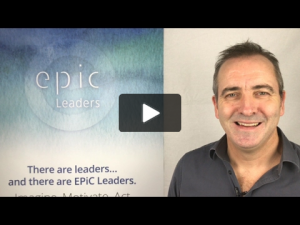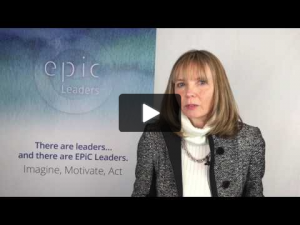
‘The more we postpone making a decision, the longer the spin cycle and the bigger the load…’
(If you prefer to view this content in video format, click the link above).
My friend and Professional Organiser, Denise Allan, was sharing tips on morning TV the other day about how to keep your home tidy and she said “Clutter is postponed decisions”.
Wow! Powerful.
And then I began to look about me. The areas of clutter in my own home (Those drawers that contain stuff that we never use, but haven’t decided what to do with them. That pile of papers, not urgent, yet waiting for a decision. The neglected area of the garden, waiting for us to decide whether to plant or pave it).
Consider then the tidy areas (The utensils, we decided exactly which ones we want in the drawer. Those we use only on rare occasions are kept in a different cupboard. The living areas are tidy – most of the time! Everything has a place and is put away at the end of each day). It seems therefore, that clutter does indeed represent postponed decisions.
Did you know, however, that a similar thing happens in the brain – the clutter, or mental chatter, that accumulates. The endless spin cycle of thoughts, that take up so much head-space.
The more we postpone making a decision, the longer the spin cycle and the bigger the load.
When you feel exhausted, and there is no apparent reason for it (that is, you haven’t been up for hours, or pushed yourself mentally or physically), ask yourself what are the thoughts that are going around in your head? What decisions might you be postponing?
Raj Raghunathan PhD. Associate Professor afilliated with Dept of Marketing at University of Texas, McCombs School of Business ran a study to look at mental chatter.
He got the students to write down their spontaneous thoughts. These are the thoughts that occur before the student attempts to put a positive spin on them.
Prior to the study, most students predicted that 60-75% of their thoughts were likely to be positive. The results were surprising. Up to 70% of the spontaneous thoughts that were actually recorded were negative.
According to Professor Raghunathan’s study, the thoughts fell mainly into 3 categories:
Inferiority eg: Will someone else do better than me?
Love & Approval eg: Why wasn’t I chosen?
Control Seeking eg: Why won’t people listen to me?
You will notice how these thoughts are all about external validation and comparison.
So what is the connection between clutter clearing at home, mental clutter clearing and this study?
Once again, we’re back to decisions.
As a Leader, you can buy yourself head space and clear some mental chatter by making decisions. Successful leaders are in the habit of making many decisions up front. They plan for them. For instance:
o How they are going to represent themselves
o What they are going to wear (they adopt a ‘look’ – no pulling out all the possible options at 6:30am for them!)
o How they are going to lead their team
o What culture they are going to create
o What standards and expectations they expect of themselves and their team
o What they will do to meet their objectives
o How they are going to deliver value for the organisation
And so on…
With these decisions already made, they have automatically freed up space in their heads so that they can tap into their creativity, be more resilient and self-assured, gain clarity and the energy needed to deal with important matters. It really is like opening the filing cabinet, boxing up everything unnecessary and archiving it.
When we work with clients, we focus on simple, practical steps that make the biggest difference to them, their teams and their organisation.
By the way – if you could use some clutter clearing tips for the home, here is that clip of Denise in action.
To read an article about Professor Raghunathan’s study, click here.
To find out more about how to be an EPiC leader, click here to arrange a conversation with one of our Consultants or call us on 00 44 1932 888 885.


















